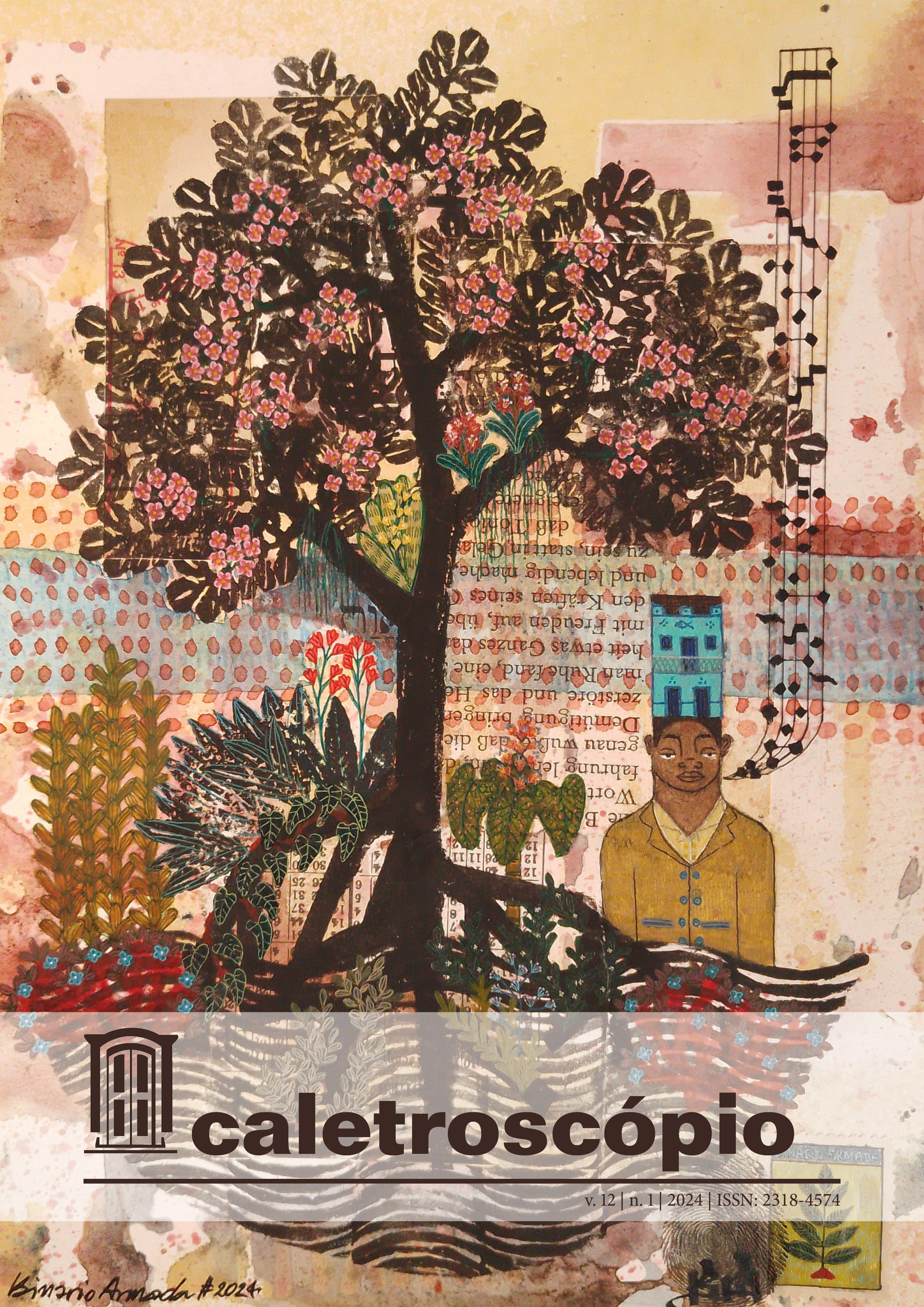A literatura intimista frente aos dilemas do engajamento
uma análise dos romances Quarup e Pessach: a travessia
Abstract
In this article, I will analyze two pieces of Brazilian literature well known for their engaged themes: Quarup and Pessach: a travessia, both published in 1967 and often associated with the search for the socialist revolution in Brazil. Their respective authors, Antonio Callado and Carlos Heitor Cony, became notable at the beginning of their careers for constructing narratives that were intimate and psychological in nature. However, in the mid-1960s, they incorporated into their style themes well valued by the revolutionary left-wing party, such as engaging in armed struggle. It is possible that they made these new aesthethic choices driven both by the similar shifts they experienced in the journalistic field after the 1964 coup, and by the
pressure from a public that consumed engaged art that had been taking shape for a few years. Thus, it may be possible to understand these books as fictional representations of quandaries faced by the left-wing groups during that period, rather than prescriptions of revolutionary formulas.
Downloads
References
CALLADO, Antonio. “Depoimento”, in: ANDRADE, Jeferson de (org.), Um jornal assassinado: a última batalha do Correio da Manhã, Rio de Janeiro, José Olympio, 1991.
CALLADO, Antonio. Quarup, Rio de Janeiro, Civilização Brasileira, 1980.
Callado, Antonio. “Jango ou o suicídio sem sangue”, in: DINES, A.; CALLADO, A.; ARAÚJO NETTO; BRANCO, C. C.; SOUZA, C. M.; DUARTE, E.; GOMES, P.; FIGUEIREDO, W. (orgs.). Os idos de março e a queda de abril, Rio de Janeiro, José Álvaro, 1964.
CONY, Carlos Heitor. Pessach: a travessia, Rio de Janeiro, Nova Fronteira, 2021.
CONY, Carlos Heitor. Eu, aos pedaços: memórias, São Paulo, Leya, 2010.
CONY, Carlos Heitor. Na prisão com Glauber e Callado (entrevista). Folha de São Paulo, 28.07. 1996, acesso em 10.01. 2024.
CZAJKA, Rodrigo. “Sou brasileiro, democrata e editor”: Ênio Silveira e a repressão à editora Civilização Brasileira (1963-1970)”. Tempo Social, São Paulo, 32 (2), p. 149-174, Maio-Agosto 2020.
GABEIRA, Fernando. O que é isso companheiro?, São Paulo: Abril Cultural, 1984.
GORENDER, Jacob. Combate nas trevas. A esquerda brasileira: das ilusões perdidas à luta armada, São Paulo, Ática, 1987.
KUSHNIR, Beatriz. “Depor as armas: a travessia de Cony e a censura no partidão”, in: REIS FILHO, Daniel Aarão (org.). Intelectuais, história e política (séculos XIX e XX), Rio de Janeiro, 7 Letras, 2000.
LEITE, Lígia Chiappini M.. “Quando a pátria viaja: uma leitura dos romances de Antonio Callado”, in: LEITE, L. C. M. & LAFETÁ, J. L. & ZILIO, C. (orgs.). Artes plásticas e literatura, São Paulo, Brasiliense, 1982.
NAPOLITANO, Marcos. A arte engajada e seus públicos (1955-1968). Estudos Históricos, Rio de Janeiro, n. 28, p. 103-124, 2001.
QUELER, Jefferson José. Jornalismo e literatura remodelados: estudo de um grupo de intelectuais das camadas médias (1940-1960). Estudos Históricos, Rio de Janeiro, vol. 36, n. 78, p. 74-93, Janeiro-Abril 2023.
RIDENTI, Marcelo. Em busca do povo brasileiro: artistas da revolução, do CPC à era da TV, Rio de Janeiro, Editora Record, 2000.
SAPIRO, Gisèle. Sociologia da literatura. Belo Horizonte: Moinhos; Contafios, 2019.
SILVERMAN, Malcolm. Protesto e o novo romance brasileiro, Rio de Janeiro, Civilização Brasileira, 2000.
Copyright (c) 2024 Caletroscópio

This work is licensed under a Creative Commons Attribution-NonCommercial-NoDerivatives 4.0 International License.
The publication Caletroscopio shall retain for a period of three years all authorial rights for works accepted for publication: articles, reviews, translations, etc. Outside this restriction, these works are licenced through Licença Creative Commons-Atribuição-NãoComercial-SemDerivações 4.0 Internacional.
Upon expiry of this period, in the event that the author publishes the text, even when making alterations to the original, we would ask authors to include as a footnote, the information that a previous version of the article was published in the Revista Caletroscópio, citing the appropriate references.


